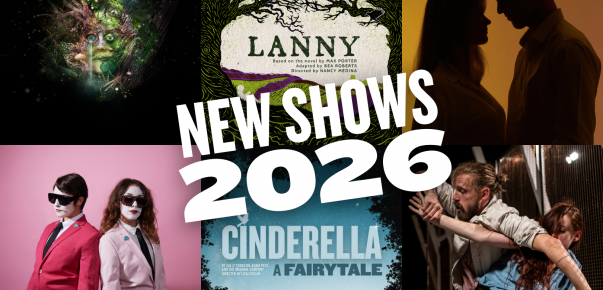The Cherry Orchard – Week Two
29 Jan 2018While The Cherry Orchard rehearsals continue to power ahead, Assistant Director Evan Lordan gives us an inside scoop at how the cast are preparing to take on Chekhov’s final masterpiece in our ‘Year of Change’ season.

“The moment you think Chekhov is being judgemental, think again.”
Week 2’s rehearsal diary is scattered with insights, exclamations and questions that have come about in the rehearsal room as a result of delving into the text of The Cherry Orchard. I don’t attribute them to anyone in particular and they are intentionally left without any context, as it makes some of them seem incredibly profound, some very curious and others very silly…
“There is a trap in thinking that if people are rude to your character, that that means you are low status – not so.”
The work never stops here on The Cherry Orchard! It is lunchtime on Friday afternoon and Movement Director Liz Ranken is working with Éva Magyar and Joseph Hardy on the choreography and music for Act 3; it is a lot of fun, has lots of energy and is, quite simply, spectacular.
“He would watch people and has such a keen eye for human behaviour and psychology; be in the same room as Anton Chekhov at your peril!”
This week has been the first time that the actors have been given a chance to stretch their legs, which is good because they have been champing at the bit for the chance to try these characters on for size. This play is an absolute beast and although we’ve had a chance to skip ahead and look at choreography in Act 3, we have only just started scratching the surface of Act 2 on Friday morning.
“Always trust a sudden mood swing!”
I have been watching Director Michael Boyd like a hawk, trying to glean and steal as much theatrical know how as humanly possible. He wants every single moment of this production to hold water; why a character says what they say, how they say it, which entrance they come from and every single movement they make or don’t make. Nothing is left to chance and everything has purpose. The two most recurring phrases in the room are, “I don’t buy it” or “I buy that”.
“Chekhov loves the exquisite anguish of unrequited love.”
Making up the arching four-act narrative is the detail in each character’s individual stories, such as filling an awkward silence by deciding to give to someone their telegrams and going to stand near a different character to give them support or for safety. This ‘story’ may take up only 5 or 10 seconds of stage time, but it has a beginning, middle and end. Those 10 seconds have purpose and drive and as a result we, the audience, can ‘buy it’ as truthful.
“He is a genius about the hardship of money, the psychology of it… the humiliation it can cause, the desperation, how it can affect us spiritually.”
I think it’s worth mentioning that just because there is this constant search for each character to have truthful stories and motivations, it doesn’t mean that this show is singularly located in the realms of ‘Realism’ or ‘Naturalism’.
“Can both of you do a one-handed cartwheel?”
This was Chekhov’s final play and he had started to experiment with different forms; Michael Boyd is looking to stay as loyal to Chekhov’s intentions as possible by embracing the different styles and genres that he was exploring at the time.
“Chekhov is so cruel.”


